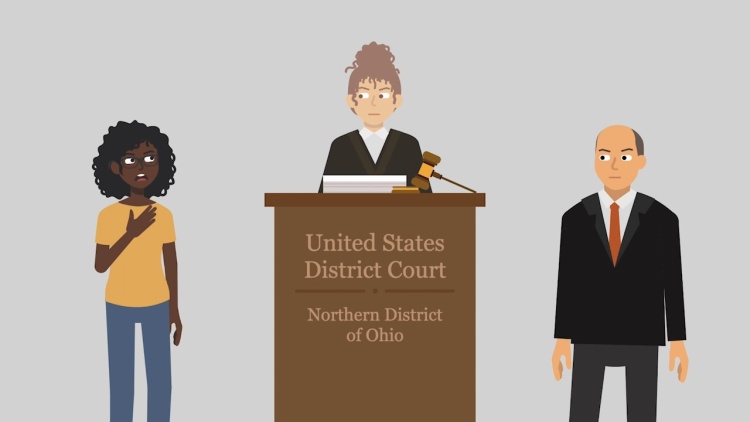City of Canton, Ohio v. Harris
United States Supreme Court
489 U.S. 378 (1989)
- Written by Whitney Kamerzel , JD
Facts
Geraldine Harris (plaintiff) was arrested by the Canton Police Department (the city) (defendant). Canton police officers found Harris sitting on the floor of a police car and asked Harris whether she needed medical attention. Harris incoherently mumbled in response. Harris was brought into the police station. She slumped to the floor twice and was subsequently left on the floor so she would not fall a third time. Harris did not receive medical attention until she was released and her family brought her to a hospital. The hospital determined Harris was suffering several emotional ailments. Harris sued the city in federal district court under 42 U.S.C. § 1983, arguing that the city had violated her Fourteenth Amendment right to receive medical attention while in police custody. A jury trial found that police shift commanders were authorized to determine, in their discretion, whether a detainee needed medical attention, although no special medical training was provided to the shift commanders. The jury held in Harris’s favor on her § 1983 claim. The city filed a motion for judgment notwithstanding the verdict, which the district court denied. The city appealed, and the court of appeals agreed with the district court that a city may be liable under § 1983 for a reckless, deliberately indifferent, or grossly negligent failure to train their employees. However, the court of appeals remanded the case on other grounds. The Supreme Court granted certiorari.
Rule of Law
Issue
Holding and Reasoning (White, J.)
What to do next…
Here's why 899,000 law students have relied on our case briefs:
- Written by law professors and practitioners, not other law students. 47,000 briefs, keyed to 994 casebooks. Top-notch customer support.
- The right amount of information, includes the facts, issues, rule of law, holding and reasoning, and any concurrences and dissents.
- Access in your classes, works on your mobile and tablet. Massive library of related video lessons and high quality multiple-choice questions.
- Easy to use, uniform format for every case brief. Written in plain English, not in legalese. Our briefs summarize and simplify; they don’t just repeat the court’s language.







